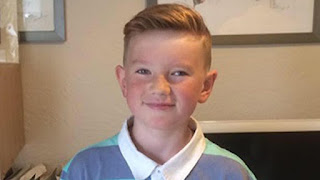Victims tell Michelle Del Rey the doctor’s abuse spanned across a 15-year period
The Independent
December 18, 2023
“Do you remember him?” Nechie Fischman’s friend asked her in November.
It had been nearly a decade since the 30-year-old former Orthodox Jewish woman last saw the Brooklyn doctor.
Still, she remembered him instantly.
The friend had sent her an Instagram post from a charity looking for plaintiffs to participate in a lawsuit against Dr Robert Goodman. (Dr Goodman denies the allegations in the lawsuit.)
The group would file under the recently expired New York’s Adult Survivors Act, a piece of legislation allowing adult survivors of sexual abuse to file civil claims against their assailants during a one-year lookback window regardless of when the crime occurred.
But for Ms Fischman, there was a lot to consider.
Borough Park’s tight-knit and conservative Orthodox Jewish community would talk. She feared people would think she was problematic for having suffered the alleged abuse and even more so for publicly discussing it so many years later.
“The good people don’t speak up,” Ms Fischman told The Independent.
However, at that point, she said, “I had nothing to lose.”
Two days before the ASA expiration, she joined the lawsuit alongside three other women who formerly belonged to, or are currently part of, the orthodox community, Malky Wigder, Liba Kolp and a ‘Jane Doe’. All of them claim that Dr Goodman sexually assaulted them while they were his patients.
In a statement through his attorney, Dr Goodman said, “I unequivocally deny all the allegations in the complaint.
“I have had tens of thousands of patient interactions over the decades and, in stark contrast to the allegations in the complaint, I have received significant praise from patients throughout my career concerning the quality of the care I provide and for my professionalism,” he said.
Their experiences, according to the complaint, are similar. The women went in for routine examinations and during the visits, they say the doctor groped their breasts.
Two of the women spoke to The Independent and said they want to see the doctor held accountable for his alleged actions, which they say happened across 15 years and deeply impacted the community.
One woman, who is the Jane Doe in the suit against Dr Goodman, asked to remain anonymous because she worries about being ostracised by the orthodox community.
She hasn’t even told her parents about the abuse, she said in court filings.
“In our community, being an unmarried woman who was subjected to sexual contact of any kind, even nonconsensual, is looked down upon and viewed as a source of shame and embarrassment,” reads the lawsuit.
Also, publicising her name could make it very difficult for her to find an orthodox husband, she said.
“As soon as they hear there’s any trauma, sexual abuse, they see it as baggage,” she told The Independent, referring to the community at large. “Nobody wants that. They think it’s a bad thing.”
The ASA gave women from New York’s fiercely private Hasidic communities a chance to speak out about sexual assault in a profound way, with women able to come forward together.
According to Asher Lovy, the director of ZA’AKAH, an organisation dedicated to raising awareness about sexual abuse in the orthodox community, at least a few dozen lawsuits have been filed by current or former members of the community against their assailants.
Three women are individually suing a different doctor in the Orthodox community who they say sexually assaulted them. In one of those complaints, a woman said that the doctor “would forcibly fondle [her] breasts under her clothes” during each of the four appointments she attended.
One plaintiff is suing the executor of an estate belonging to a man she said sexually assaulted while part of his foster family. The abuse started when she was 15 and occurred again after she turned 18, the complaint states.
Coming forward is difficult for survivors, Mr Lovy said, because community leaders are against survivors reporting assaults and are “fine with enacting consequences against those who do.”
It’s not uncommon for allegations to be handled internally and quietly, he added.
Jane Doe said she saw Dr Goodman twice in 2016, when the alleged abuse occurred. She’s never returned to his office and avoids going down the street in her neighbourhood where it’s located.
She is now fearful of male doctors and feels embarrassment and shame when she thinks about the incident.
In Ms Fischman’s case, she became a patient of Dr Goodman’s for about a year in 2012. She was 20 years old and had just gotten married. The doctor was recommended to her by a friend.
Before her first appointment, she recalled hearing things about him from those around her. People described him as “flirty”, “touchy”, and someone who “liked to hug his patients”.
Even so, she didn’t think twice about the remarks. She considered the behaviour to be normal for a man in his position.
Initially, it was hard to tell if something was wrong, she said.
Orthodox women do not touch men unless they are related or married to them. As a result, she said she had no framework to discern what was and was not ok.
She saw him on a routine basis, sometimes as often as twice a week for treatment regarding her chronic asthma and other medical conditions she suffered from, and found him friendly.
To schedule appointments, the doctor texted Ms Fishman through WhatsApp, court records say.
She alleges their interactions became inappropriate throughout her treatment.
He would hug her, ask about her marriage and compliment her eyes and breasts, she said.
Once, he stated that, “her husband was an idiot for not appreciating her body”, according to court records. The doctor knew that her marriage had become abusive, the complaint reads.
During some appointments, he had her sit on the edge of an examination table with her legs spread open while he stood in between them. He would then place his hand on her inner thigh, she said.
In other instances, he’d grope her breasts under her shirt as he attempted to check her heartbeat, the complaint reads. Ms Fischman noted that the doctor did not use a stethoscope when this allegedly happened.
Though the apparent actions made her uncomfortable, she thought there was something wrong with her for feeling that way. She blamed herself for being ungrateful for a caring doctor.
“Only a bad person in the community gets into this,” she remembers thinking.
Ms Fischman stopped seeing the doctor after getting divorced. At a certain point, she said she decided to take her life back and never made another appointment.
She didn’t report the alleged abuse after it happened because she didn’t want to draw more attention to herself, she said.
She left Brooklyn around 2014 and permanently moved to Florida roughly four years later.
The lawsuit gave her the ability to “speak up in a safer environment” and with other women. Finding out that she wasn’t the only one who suffered the alleged abuse left her shocked, she said.
“If people knew about it, why was it still happening?” asked Ms Fischman.
The Independent called Dr Goodman’s Brooklyn office on Friday and it went to an answering machine, which named him and said the office was closed.
Though she’s no longer part of the orthodox community, Ms Fischman wants its leaders to change how allegations of sexual violence are handled.
Assailants should be held accountable and threats of ostracisation should be eliminated, she said.
“Victims shouldn’t be scared of losing [their] entire family.”
https://www.independent.co.uk/news/world/americas/four-women-suing-jewish-orthodox-doctor-b2465100.html










